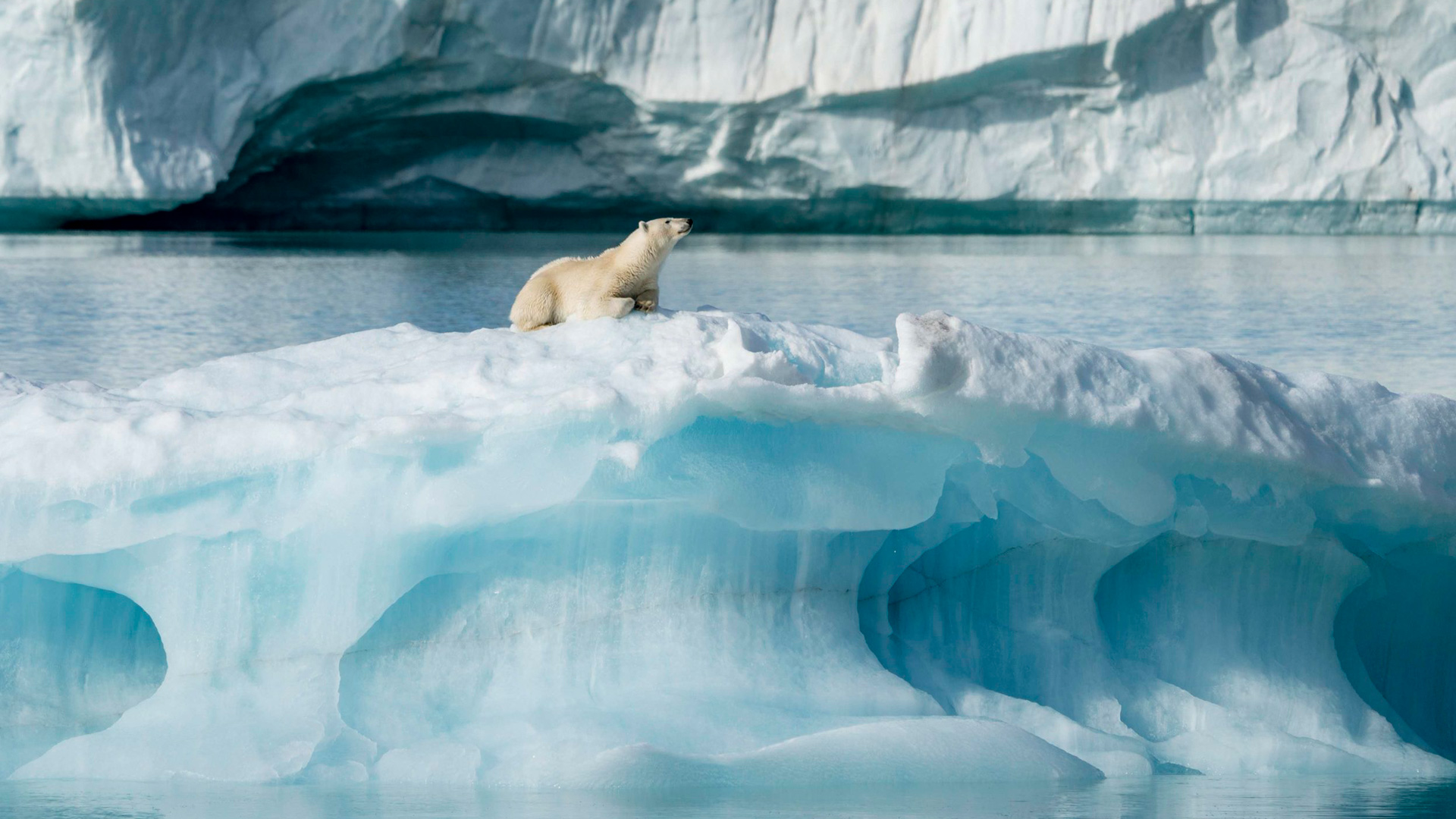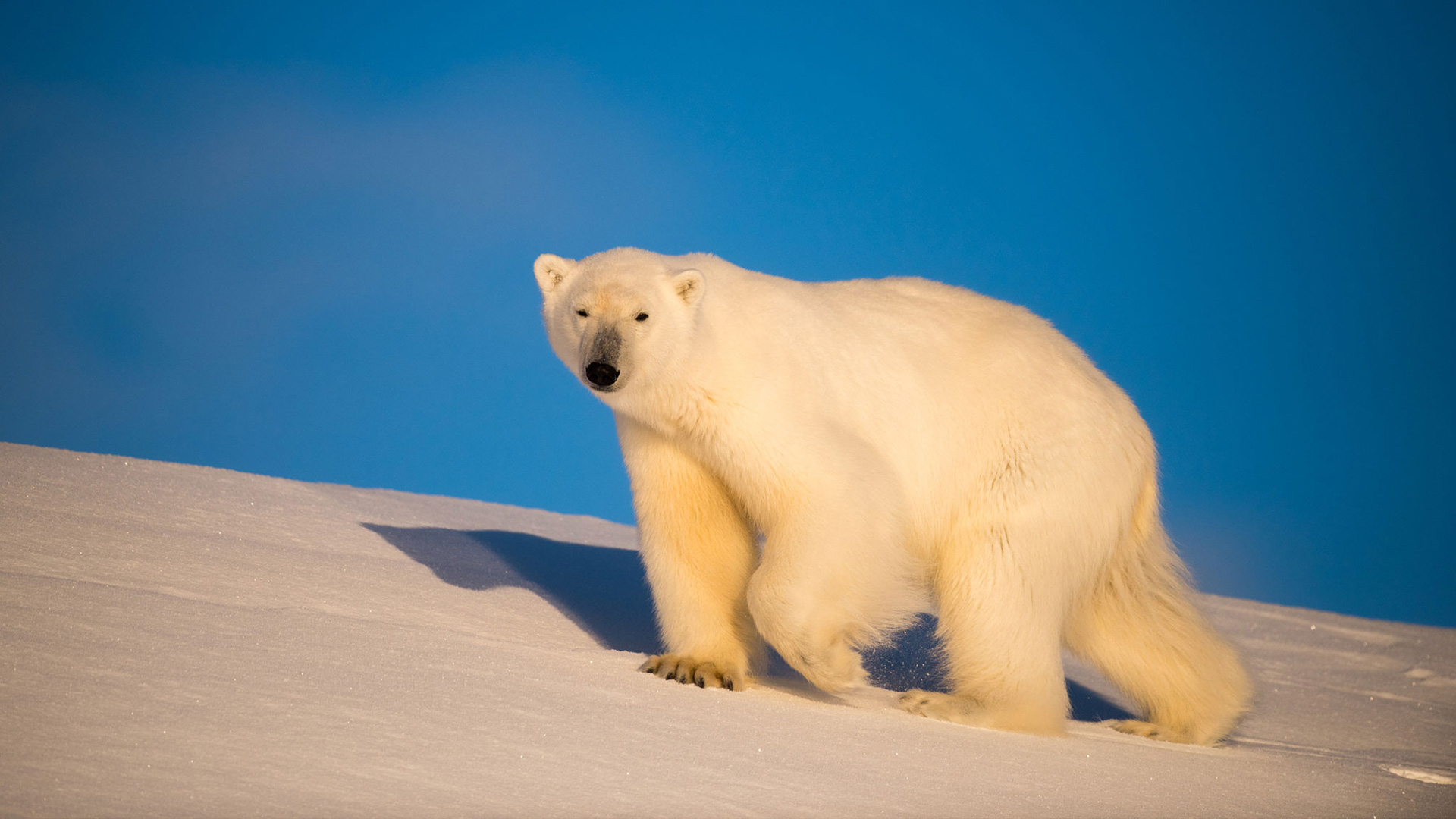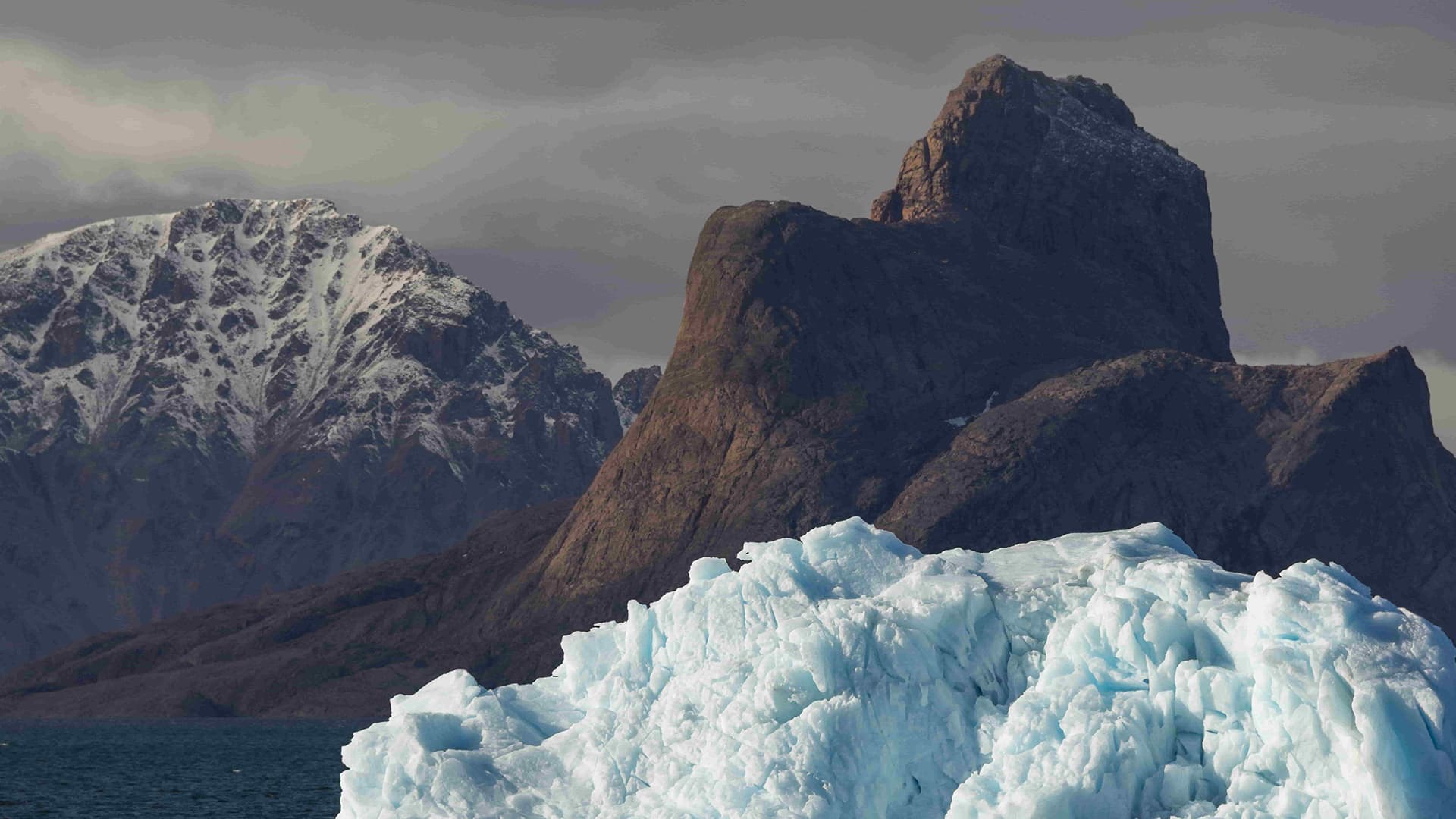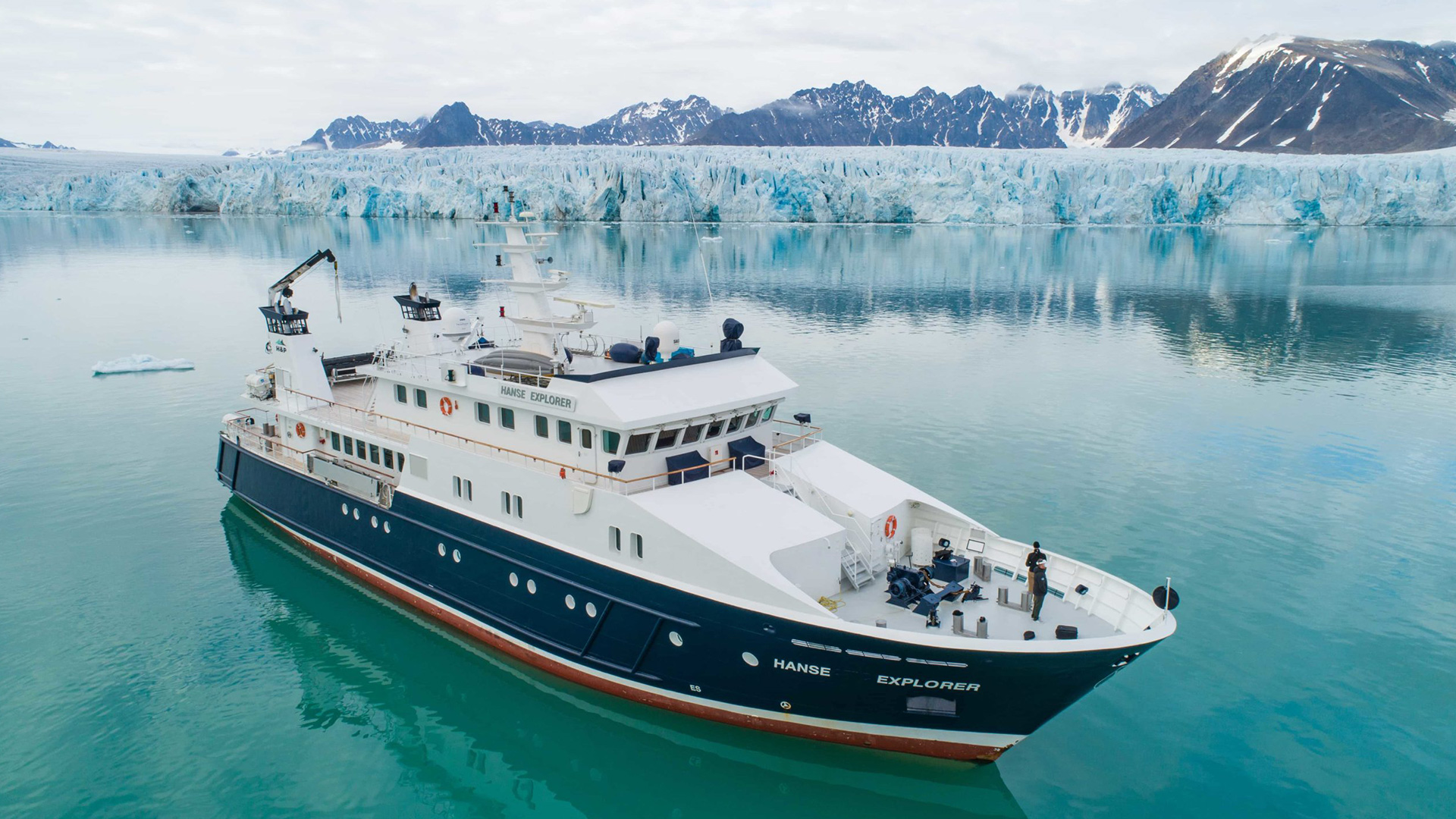Our 2017 Arctic season is wrapping up with the finalising of paperwork, including reporting back on permits, debriefing staff and clients, and recording the high points and lessons learned to ensure EYOS remains the market leader in delivering safe, seamless, educational and luxurious expeditions.
These locations are not exclusive simply due to their remote nature, but also due to their natural, historical or cultural significance.
Close cooperation with governing agencies and authorities is key to the success of these trips and, ultimately, delighted clients who have enjoyed a very enriching experience.
However, there is an extraordinary amount of preparation and planning required to properly manage a vessel visiting wild and often highly-protected places.
The Canadian Arctic Archipelago lies north of the mainland and comprises of 36,563 islands covering about 1,424,500 km2 (550,000 sq. mil). This vast polar wilderness holds names synonymous with exploration, discovery and adventure; the Northwest Passage, Franklin, Amundsen, Baffin Island, Ellesmere Island.
As luxury travel to remote destinations becomes increasingly achievable, EYOS have formed strong alliances with the proper authorities and collaborated on several initiatives to help govern sustainable tourism in this High Arctic wilderness. Respecting the laws and sovereignty of a nation is crucial to gaining access.
This season has once again borne witness to some remarkable cooperation between EYOS, our industry partners and various Canadian federal and territorial agencies.
The Canadian Border Services Agency (CBSA) plus other security organisations have the mammoth task to protecting and securing entry into the country; as climate change impacts ice conditions in the north, this task evolves.
EYOS has instigated a pilot programme with the CBSA to facilitate entry for private vessels, which has been cost-effective for yacht Owners and facilitated simpler clearance procedures for Captains.
Regular contact with Transport Canada is leading to development of guidelines for vessels cruising the area and ensuring compliance with important safety requirements in these ice-strewn waters.
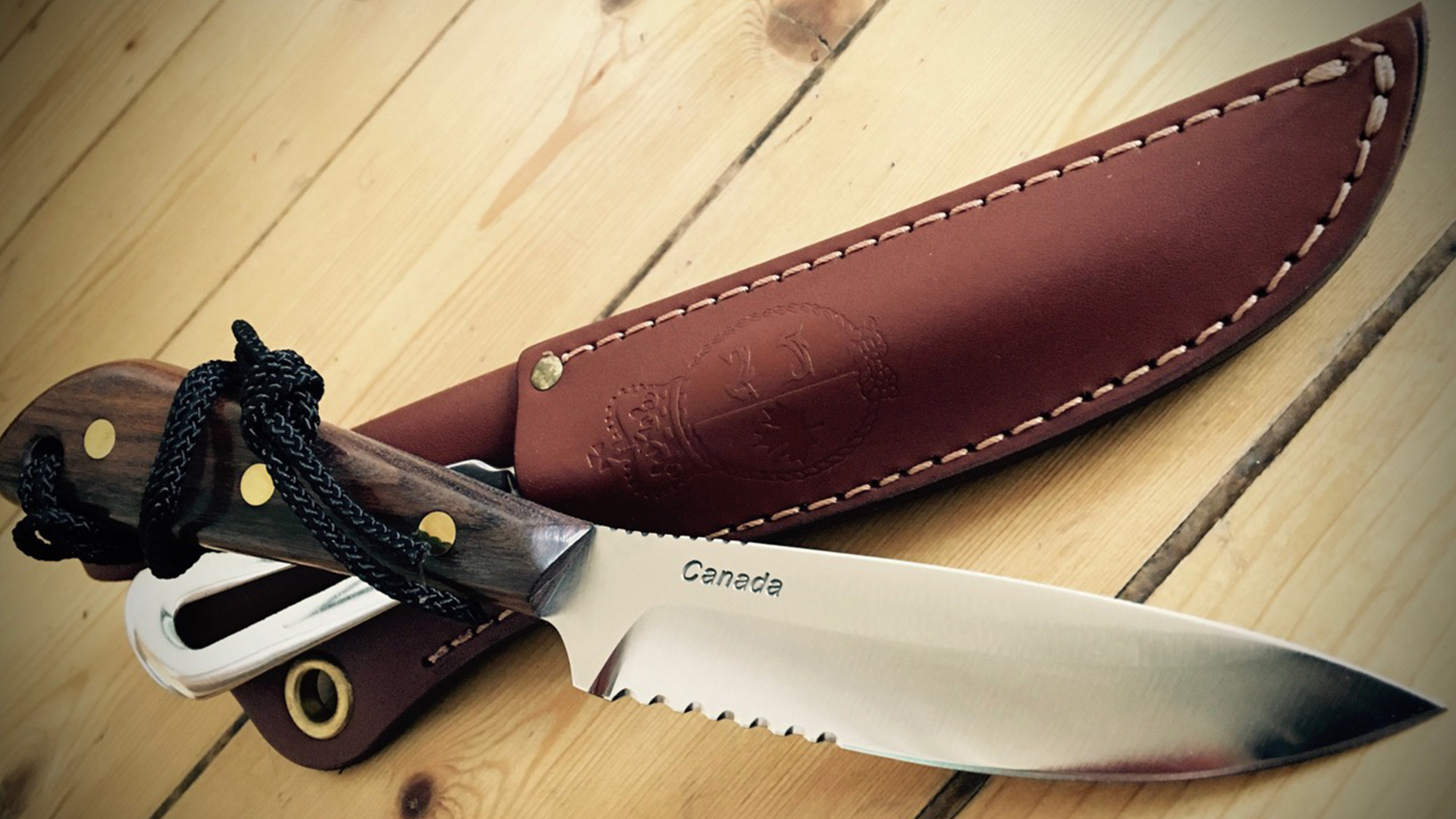
Consultation with the Royal Canadian Mounted Police (RCMP) means firearms used for protection from dangerous wildlife are legal, handled and managed safely.
There is also a bigger picture. Safety is paramount in these regions, not just for the preservation of human life, but also for the conservation of the environment.
EYOS are members of AECO—the Association of Arctic Expedition Cruise Operators; this important organisation represents industry operators and is dedicated to managing responsible, environmentally friendly and safe tourism in the Arctic while striving to set the highest possible operating standards.
In cooperation with AECO and the Canadian Coast Guard (CCG), the team at EYOS have contributed to several Arctic Search & Rescue workshops and training exercises.
Earlier this year, the Coast Guard presented EYOS Director of Expedition Operations, Kelvin Murray, with an inscribed rescue knife as carried by CCG personnel in recognition or and thanks for the contributions Kelvin has personally made.
EYOS will continue to work closely with AECO, the Canadian authorities and those of other nations to deliver safe and responsible expeditions to special wilderness areas. There is still so much to explore!
